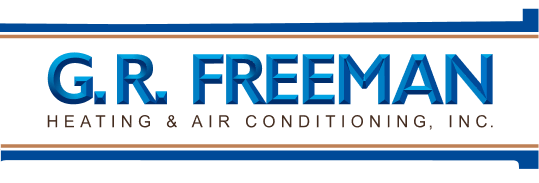HVAC technology will continue to improve in 2025 with several notable advancements. Smart thermostats are rapidly becoming popular thanks to their ease of use and emphasis on efficiency. Expect to see inverter systems in plenty of HVAC technologies this year, too. Hybrid HVAC systems that pair traditional heating with heat pump technology are also hitting the market fast, with a range of innovative heat pump products on the market. New, advanced indoor air quality systems can better target pollutants, allergens, and viruses using multi-stage filtration and UV light treatment. Read this to learn about some of the biggest innovations this year.
Smart Thermostats
Smart thermostats go far beyond temperature control. Using advanced sensors and programming, smart thermostats maintain comfort while reducing energy costs. The latest models connect to your home’s Wi-Fi network, letting you adjust settings through connected devices anywhere in your house. Many smart thermostats track your temperature preferences and even notice daily patterns to create automated schedules. They can detect when you’re home or away and adjust accordingly. Some models even monitor local weather forecasts to optimize heating and cooling.
Smart thermostats offer significant energy savings, typically reducing heating and cooling costs by 10 to 15%. Smart thermostats integrate smoothly with other systems, including voice assistants, security setups, and smart lighting. Built-in security features include data encryption and secure remote access to protect your data while maximizing ease of use.
Inverters
Unlike traditional systems that turn on and off, inverter-based systems adjust their operating speed to match your home’s heating or cooling needs. Conventional HVAC systems run at full power until reaching a desired temperature level and then shut off completely, creating temperature swings and wasting energy. Inverter systems can run at variable speeds, typically between 20 and 100% of their maximum capacity. This yields more consistent temperatures by running longer at lower speeds.
The benefits of inverter technology extend beyond comfort. Inverter-based HVAC units use less electricity because they rarely operate at full power. This avoids the energy-intensive start-stop cycles of conventional units. Inverters also put less stress on system components, which can lead to longer equipment life and fewer repairs. Additionally, inverter-based systems run quieter because they rarely max out your HVAC’s motors and fans.
Hybrid HVACs
Hybrid HVAC systems combine traditional heating and cooling methods with advanced heat pump technology. This approach maximizes efficiency in all weather conditions. They are dual-fuel systems that automatically switch between gas furnace operation and heat pump mode based on outdoor temperatures and estimated energy costs.
A heat pump efficiently handles heating and cooling duties by moving heat between the home and the outdoors. When temperatures drop below freezing, heat pump efficiency decreases. At that point, the system switches to the gas furnace for more effective heating. Intelligent switching saves money using the most efficient heating method for current conditions.
Hybrid systems also offer excellent comfort control. They maintain more consistent temperatures throughout your home and provide better humidity management in the summer months.
Indoor Air Quality
Modern indoor air quality systems combine multiple technologies to create healthier indoor environments. Advanced filtration systems now capture particles as small as 0.1 microns, including dust, pollen, and bacteria. Many filters incorporate HEPA filtration alongside activated carbon filters that remove odors, gases, and volatile organic compounds from your home’s air.
UV light technology adds another layer of protection by neutralizing airborne pathogens. As air flows through your home’s HVAC system, UV-C lights in a chamber target microorganisms like bacteria, viruses and mold spores. UV light technology is especially effective at preventing mold growth, which helps maintain system efficiency and air quality.
Humidifiers work alongside these purification methods to maintain optimal moisture levels. They can add humidity as needed, an especially valuable feature during winter when heating systems can make a house uncomfortably dry.
Cleaner indoor air benefits everyone. However, you should look closely at these options if anyone in your household has respiratory issues. Air quality innovations are significant for people with asthma, allergies, or COPD. You may also want to explore these options if you live near a roadway or factory.
G. R. Freeman Heating & Air Conditioning, Inc. has been in business since 1977. We are ready to serve residential and commercial customers in Evansville, IN, and nearby areas. We install, repair, and maintain a variety of heating systems and air conditioning units. Our technicians can also address indoor air quality concerns. If you’re looking to add the newest HVAC technologies to your system, contact us today.








